
Today in Baku Azerbaijan, we spent time with Mr Jamie Ovia, from Tuvalu.
A Mitigation Policy Advisor for Tuvalu’s Climate Change Department, Ministry of Home Affairs, Climate Change, and Environment, COP29 is Mr Ovia’s seventh COP. He follows the negotiations on Climate Finance.
This is part of a series where we hope to give our Pacific communities a better understanding of the work and the challenges our Pacific negotiators, like Mr Ovia, go through during these COPs.
While people often see the smiling photos, and they think the destinations these negotiators travel to are fancy and exotic (and some of them are), what they do not see is the long hours, tears, pain and the tough realities on the ground during these global negotiations.
Negotiators and delegates easily lose track of time. They spend their days in windowless rooms, negotiating from morning into the night, with little time to coordinate or rest. Unsurprisingly, with a divergence of views on all different thematic areas, it is an arduous process, even for the seasoned.
So how do Pacific climate change negotiators rise to the challenge every day?
What might a typical day during a COP look like? Seeing how they work might give you more appreciation for all that they do to fight for the survival of Pacific communities at the forefront of the climate crisis.
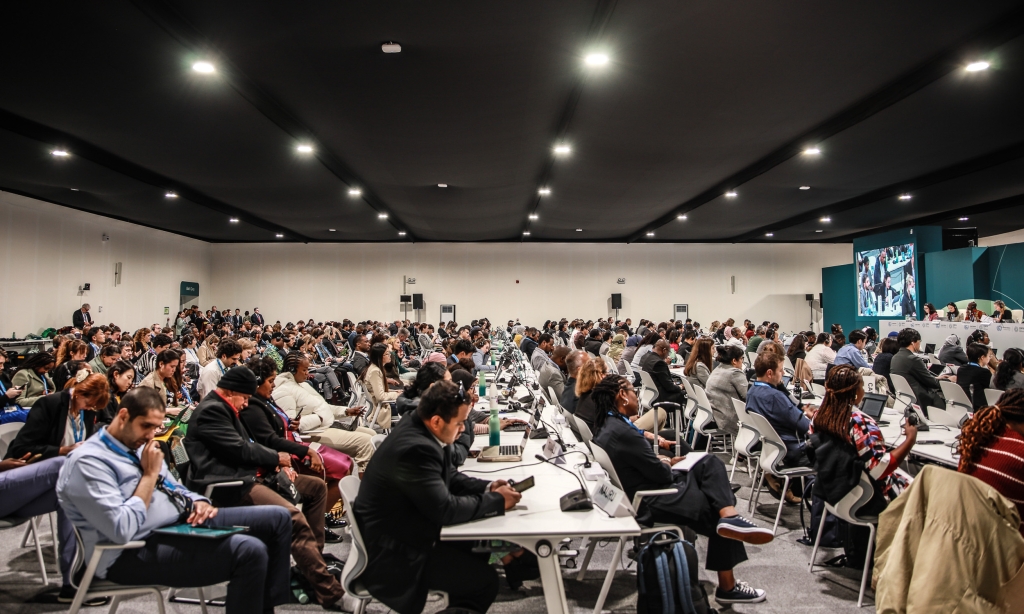
This is how it was for Mr Ovia at COP29 today:
5am – 7am:
Woke up 6am. It’s freezing and dark outside. My taxi to the venue comes at 7am so I have to quickly shower and find some breakfast. On most days when there is no time, breakfast is just a coffee on the run.
8am – 10am:
At the venue, the key things in the morning are the coordination meetings. Firstly, there is the Alliance of Small Island States (AOSIS) coordination meeting. This started at 8am and finishes at 9am.
The Pacific Small Island Developing States (PSIDS) coordination meeting is another key one for us but today there was none, instead we had our Tuvalu coordination meeting with our delegation.
Why are there meetings important? In these global negotiations, we must have a strategy. There are so many moving parts and things are constantly changing so these meetings help us to get the latest updates and keep up with latest developments.
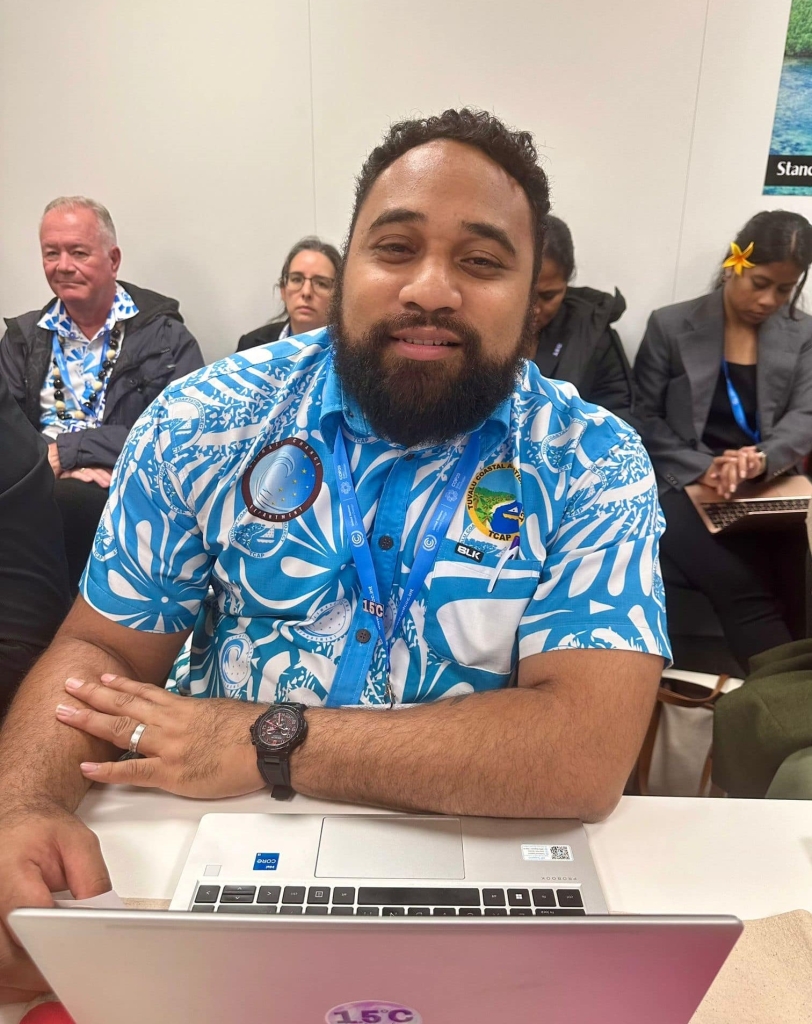
11am – 1pm:
Arrive at the negotiation room. The New collective quantified goal (NCQG) on finance is a big issue. In informal consultations under the Conference of the Parties (COP) serving as the Meeting of the Parties to the Paris Agreement (CMA), Co-Chair Zaheer Fakir (UAE) presented a revised draft text. Many developed countries expressed frustration at the lack of engagement in the informal discussions and cited areas where merging text was possible. This is the sort of thing that happens in these negotiations. Sometimes negotiations go over 1pm, e.g: so today Finance (NCQG) cut into lunch/break time and finished at 1.45pm.
I was already supposed to run to another meeting scheduled to start at 1pm, the Least Developed Countries (LDC) Coordination. This is the reality for Pacific negotiators with limited manpower, there is only one person to try and cover so many things. You can’t be in two different places at one time. Also, the venues are quite big.
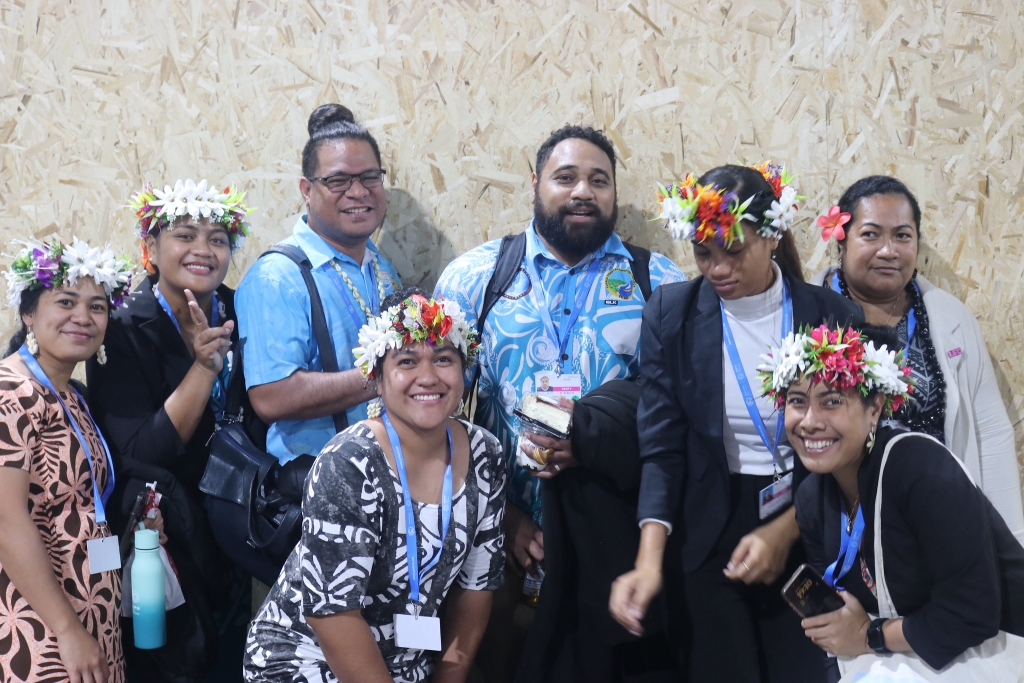
2pm – 5pm:
Found time for a quick lunch today. The prices of things at COP venues are quite ridiculous. A small sandwich (by our Pacific standards) can easily set you back USD 10 or more. But we have no choice, we’ve got to get some fuel.
After lunch, we are back to the negotiation rooms. And the fun continues.
We are also often pulled into side events happening at the Pavilion space. I enjoy this time because I get to see people from other Pacific countries.
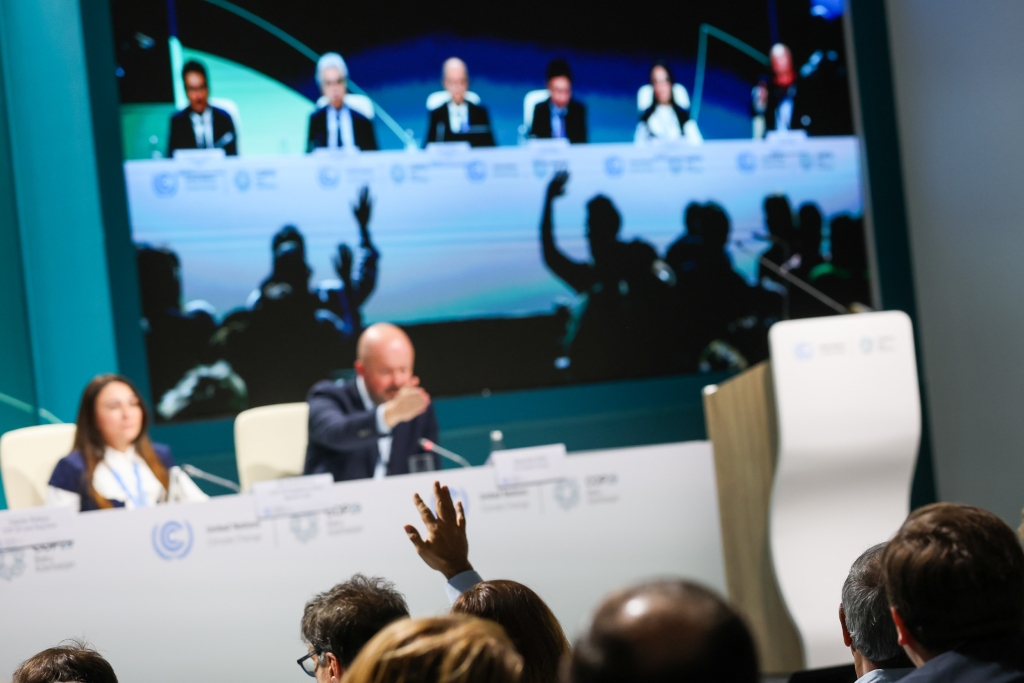
6pm – 9pm:
Just as the day started, we have another AOSIS Coordination meeting at 6pm. As I said, with many moving parts and where things are constantly changing, the need for coordination meetings are crucial, even more so for small Pacific delegations like Tuvalu.
Negotiations resume at 7pm. This can go until 10pm, if not longer. In between all this, I have to try and find some dinner. Again, it’s going to be very basic food, many times a sandwich so we can keep moving.
Today is a good day because we got to finish at 8pm. I guess it’s because it’s early days at COP29 and I know it’s only going to get worse. Caught a taxi again (after waiting a while) because there are thousands of people trying to do the same.
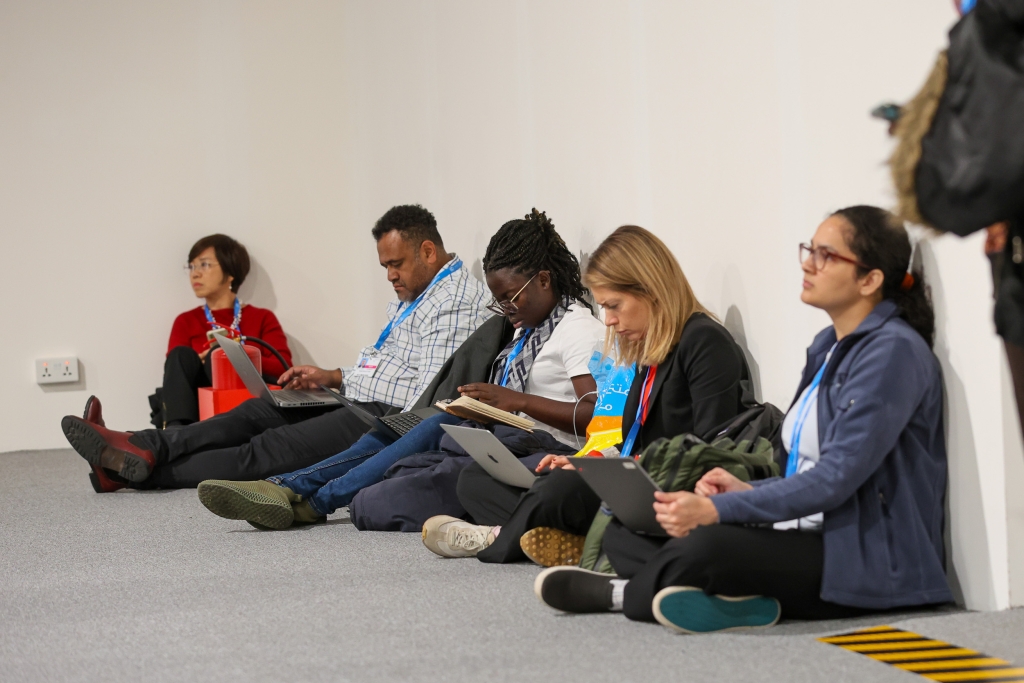
10pm – 1pm:
I feel lucky today that I’m able to get to my hotel at this time, so I will try and get some sleep so I will be ready for tomorrow. I know I’m not going to be this lucky when climate finance negotiations heat up next week!
Photo Credits:
Main photo: Fiona Goodall / Getty for Lumix
Other photos from COP29: Photo by IISD/ENB | Mike Muzurakis